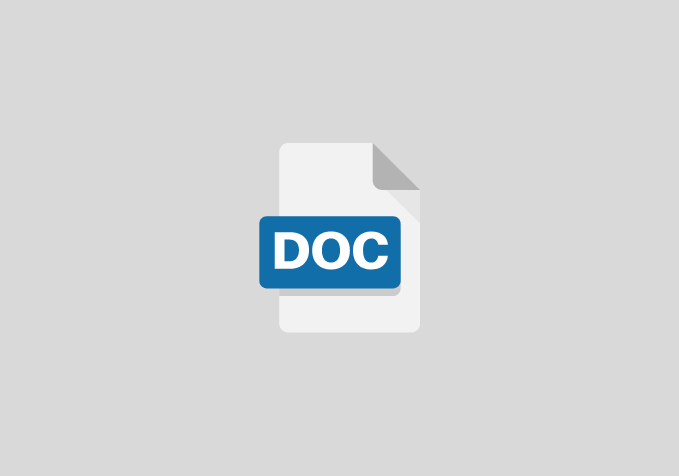Evaluation of Management Accounting and Its Application to Management, Planning, Control and Decision Making
CHAPTER ONE
Objective of the Study
Thinking of management accounting system without understanding behavioural aspect and the impact of national and corporate culture would be fruitless since decision process is so important in influencing behaviour. To this end therefore, the following objectives will constitute the main focus of this research work viz.
- To find out the behavioural implications of budgeting in selected Nigerian
- To investigate how accounting aids management in decision makings in selected organizations
- To find out the behavioural problems of accounting as it relates to decision making).
CHAPTER TWO
LITERATURE REVIEW
Management Accounting as a System
Management accounting as a system consist of input process and output components. The input system is data from internal and external sources. The data are manipulated at the process stage on the basis of economic and mathematical principles. The manipulation may also have regard to the accounting principles and organization’s behaviour (Asechemie, 1994).
The output consists of various reports to different management levels. These reports will contain information for use in planning, execution and review functions of management and also act as a feedback for corrective measures.
Measurement –a part of management accounting functions is the basis of quantitative information. Mock and Grave (1979) points that the first requirement of measurement is reliability and the second is validity and argues further that reliability validity, meaningfulness represents factual view of measurement system. In the accounting literature, information is said to be relevant when it has feedback value (i.e. conveys corrective action that
enables corrective actions on the system to be taken) and proactive value (i.e. can be used to predict the future) Mock and Grave term this accounting information view as the purposive view that requires consideration of relevancy and cost effectiveness of alternative measure. Two intervening variables – behavioural (Users) constraints and decision concerns, helps define what information is relevant and cost effective.
Management Accounting can combine the factual and purposive view to produce a framework for evaluation and choice of measurement system, which is very important in planning and control in an organization. In this light, accounting provides organization with a system of information processing that involves control in three areas:
- The setting of targets as the basis for judgment on whether actual performance has conformed to
- The information processing function which collects data on actual performance and
- Comparing actual with expected target and report deviations therein to the appropriate manager
CHAPTER THREE
RESEARCH METHODOLOGY
ResearchDesign and Methodology
In carrying out the research, which is descriptive and evaluative in nature, the study is designed in such a way as to enable the researcher conduct field and desk research. A fairly large sample size was chosen to allow the researcher have a more reliable data.
In a research of this nature the use of questionnaires as a means of extracting information cannot be over-emphasized. Therefore, questionnaires were administered to the respondents in the study areas. Questionnaires were personally administered to the respondents.
CHAPTER FOUR
PRESENTATION AND ANALYSIS OF DATA
Data Analysis and Interpretation
The data analysis will be concerned with finding the arithmetic summation and percentages. Frequency distribution by number and percentage of respondent would be used to attach qualitative characteristics into the numerical form to make single comparison of variables.
CHAPTER FIVE
SUMMARY, CONCLUSION AND RECOMMENDATIONS
Summary of findings
The following are the findings of the study
Budgeting is a very important tool that aids management in their decision making function. Management often use budgeting to induce pressure on managers and /employees. When budget induces pressure on managers/employees, it impacts on their behaviour in any if the following ways:
Conclusion
Goals must not only be set but also achieved. Budget is a combination of the goal-setting and goals achieving machine. The goal-setting machine set goals that are to increase profit and the goal achieving machine endeavour to achieve the set goals. In order to facilitate coordination and planning, the critical steps between the setting of goal and its achievements are the acceptance of goal by goal-achieving machine, that is the budget individual. If the budget individual can be persuaded or convinced to accept the set goal, his behaviour can be relied upon to achieve the goals.
Recommendation
Based on the findings of the study, the following recommendations are made:
- Management should encourage participative managementin budgeting in the It can benefit from participation effects since participation can be grafted into existing procedures or changes where necessary. It also changes efficiency, motivation and productivity.
Bibliography
- Aneke, O.E: Introduction to Academic Method. Gostak Printing and Publication Ltd. 1998.
- Ackoff, R.L, A concept of corporate planning, John Willey and sons 1970.
- Asechemie, Daniel P.S: The management Accounting System University of Port-Harcourt Press 1994.
- Brewer, P.C: National culture and activity based costing system: A note management Accounting Research 1998.
- Ching T.M and Hong G.K: A Discussion context and impact of National and Corporate Culture: Nanyang Business School 1999.
- Copeland R.M and Descher P.E: Managerial Accounting 2nd Ed.
- Canada, John Willey and sons 1981.
- Hofstede, G.H: The game of budget control. Tavistock, 1991 Horngreen, C: Cost Accounting – a managerial emphasis, 9th Ed. Hall, 1997.
- Koontz, O’Donnell and Weihrich: Management, 7th Ed. Megraw Hill International Book, 1980.
- Levin, K; Festinger L and Pauline sear: personality and Behaviour Disorder, New York, Ronald Press Company, 1994.
- Meigs, W.B and Meigs: Accounting: the Basic of Business Decision 4th Ed. New York Megraw Hill Book Coy; 1997.
- Mock T.Y and Grove K.D: Measurement Accounting and Organizational information New York, John Willey and sons 1979.
- Orjih J. Business Research Methodology, Meteson Publicity Company, 1996.


